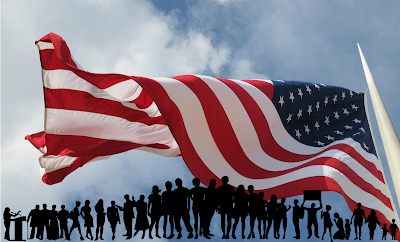One of the many problems that our political polarization has created is that folks are increasingly likely to forget that it is possible for people and systems to do things that are bad without being motivated by malice, hatred, greed, or corruption. Those motives do lead people and systems to do bad things, of course, but so do other things, like inexperience, ignorance, having a different perspective (this isn't the same as being ignorant), not having enough information or resources to do things better, having conflicting needs and values, habit, accident, and others.
Of the non-nefarious reasons why people and systems can do bad things listed above, we rightly view ignorance, inexperience, and habit negatively--not necessarily as vices, but certainly deficiencies. We recognize that ignorance, inexperience, and bad habits can and should be corrected, especially when they're leading us to do bad things or preventing us from doing good things. But others, like having a different perspective or having conflicting needs and values, aren't necessarily negative and can't entirely be corrected. However, they're also not intractable. We can acknowledge, address, and work with, through, and around them.
When someone or some system does something we believe to be bad, we have several judgment options:
1. We can decide that the person or system did the bad thing because they are bad
2. if we think very highly of and/or identify ourselves with the person or system that did something bad, we can decide that the thing they did can't really have been bad because those who did it are Good, and Good people/systems don't do bad things (after all, we are good, so we'd never belong to, identify with, or admire someone or something bad, would we?)
3. We can decide that they did the bad thing because they are foolish (and if they seem to resist learning better, we might fall back on option 1 or consider option 5 or 6)
4. We can recognize that mistakes happen, and doing a bad thing by mistake doesn't make someone bad. However, it's hard to sustain this position if they keep on doing the same bad thing again and again
5. We can consider whether they're doing the bad thing because they have a different perspective, limited resources to do things better, and/or conflicting needs/values.
6. We can consider whether we're the one who is ignorant or mistaken: maybe we're wrong about the thing they did being bad; maybe it's value-neutral or perhaps even good
Of the judgment options above, #1 and #2 generally go together and represent an absolutist, black-and-white worldview where only bad people and systems do things that are bad. While it's true that sometimes people and systems that do bad things are themselves bad, it's not true that good people never do bad things. And I believe that most people and systems aren't bad--or at least not entirely or irredeemably bad. Nor are any of us entirely good, though I believe most do try to be.
Furthermore, adopting judgment options 1 and 2 leaves us absolutely no room--and indeed no need--for civic engagement or government of any kind. Good people do things that are good and always will. Bad people are bad and always will be. The only thing good people can do about it is to get rid of all the bad people (and getting rid of people proves that those gotten-rid-of people are bad, because otherwise good people would not have got rid of them). And indeed, we find many people these days making just these sorts of claims and inferences.
If option 3 is our default judgment, we're likely to be very arrogant and uncharitable (and, in my experience, those who default to option 3 are often just a hair's breadth away from falling back on options 1 and 2). People and systems often do suffer from ignorance and inexperience. Us and ours included. Judgment option 3 is always a real possibility, but it shouldn't be our default; it's too limited.
Likewise, judgment option 4--that they did the bad thing because they were mistaken--is always a real possibility. But if we're too quick to jump to that conclusion, and especially if we're not sufficiently aware of our own propensity for being mistaken, then we're basically back to option 3 and all its problems.
The civic virtue of options 4-6 (5 and 6 especially) is that they make space for respect, trust, change, and improvement. Careful consideration will generally reveal these judgments to be the most likely of all to be true, as well.
Whenever we find ourselves judging something to be bad (or good, for that matter), it's worthwhile to reflect on how we've evaluated the motives behind it. Even if the thing really is bad, the motives may not be (and often aren't), and that matters. It affects how we address both the consequences of the bad thing and the people or systems responsible. Even if we correctly judge a thing to be bad, a poor judgment about the motives that led to it will prevent us from most appropriately addressing its consequences and preventing its reoccurrence.
We can also benefit from considering how others (I'm thinking especially of media pundits and politicians here) characterize the motives of their allies and opponents when they talk about the things they do. If someone is trying to persuade you that their opposition did (or will do) a bad thing because they are bad, or that the thing they themselves or their allies did (or will do) can't be bad because they are good, then you can recognize that they're operating within an absolutist judgment framework, which is fatal to civic virtue.






.jpg)
